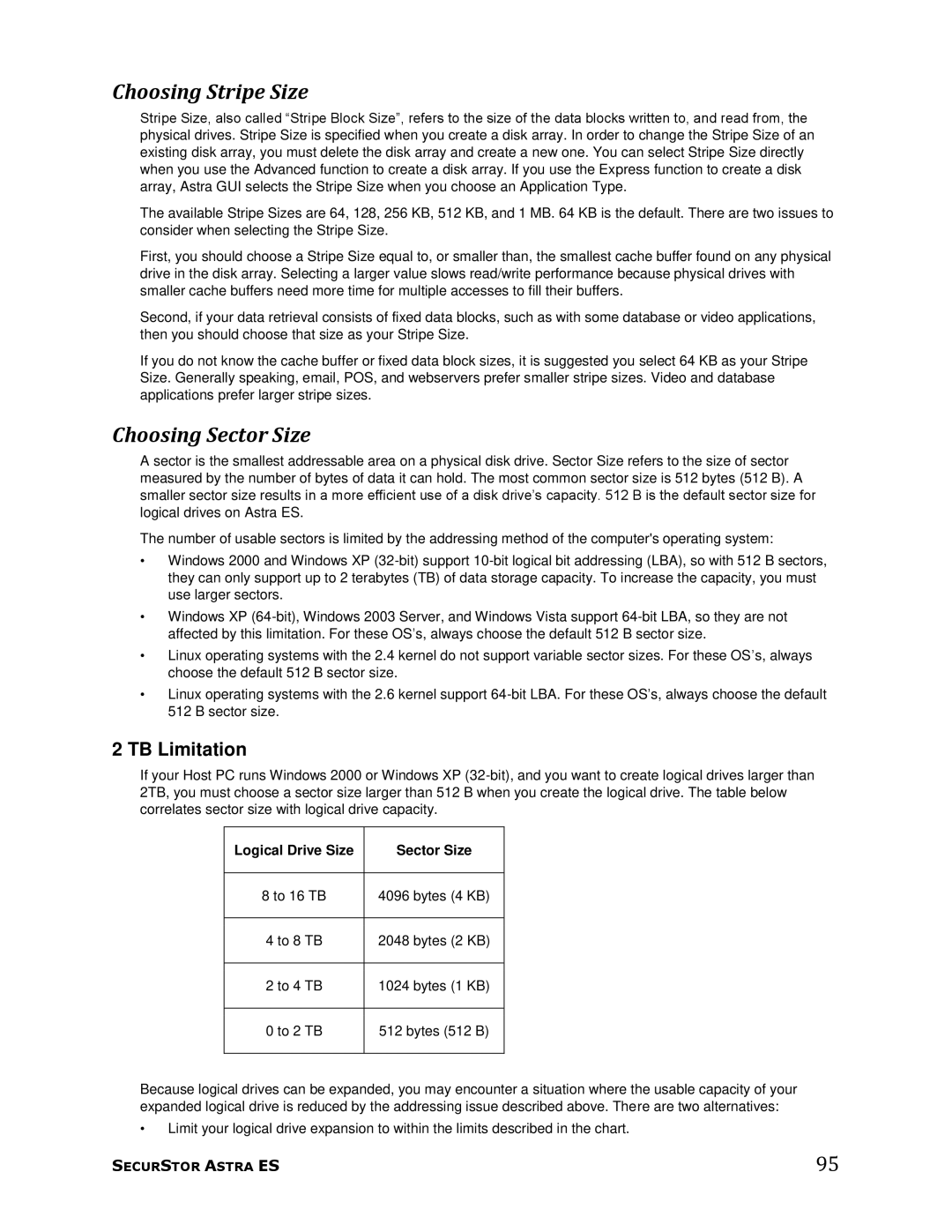Choosing Stripe Size
Stripe Size, also called ―Stripe Block Size‖, refers to the size of the data blocks written to, and read from, the physical drives. Stripe Size is specified when you create a disk array. In order to change the Stripe Size of an existing disk array, you must delete the disk array and create a new one. You can select Stripe Size directly when you use the Advanced function to create a disk array. If you use the Express function to create a disk array, Astra GUI selects the Stripe Size when you choose an Application Type.
The available Stripe Sizes are 64, 128, 256 KB, 512 KB, and 1 MB. 64 KB is the default. There are two issues to consider when selecting the Stripe Size.
First, you should choose a Stripe Size equal to, or smaller than, the smallest cache buffer found on any physical drive in the disk array. Selecting a larger value slows read/write performance because physical drives with smaller cache buffers need more time for multiple accesses to fill their buffers.
Second, if your data retrieval consists of fixed data blocks, such as with some database or video applications, then you should choose that size as your Stripe Size.
If you do not know the cache buffer or fixed data block sizes, it is suggested you select 64 KB as your Stripe Size. Generally speaking, email, POS, and webservers prefer smaller stripe sizes. Video and database applications prefer larger stripe sizes.
Choosing Sector Size
A sector is the smallest addressable area on a physical disk drive. Sector Size refers to the size of sector measured by the number of bytes of data it can hold. The most common sector size is 512 bytes (512 B). A smaller sector size results in a more efficient use of a disk drive’s capacity. 512 B is the default sector size for logical drives on Astra ES.
The number of usable sectors is limited by the addressing method of the computer's operating system:
•Windows 2000 and Windows XP
•Windows XP
•Linux operating systems with the 2.4 kernel do not support variable sector sizes. For these OS’s, always choose the default 512 B sector size.
•Linux operating systems with the 2.6 kernel support
2 TB Limitation
If your Host PC runs Windows 2000 or Windows XP
Logical Drive Size | Sector Size |
|
|
8 to 16 TB | 4096 bytes (4 KB) |
|
|
4 to 8 TB | 2048 bytes (2 KB) |
|
|
2 to 4 TB | 1024 bytes (1 KB) |
|
|
0 to 2 TB | 512 bytes (512 B) |
|
|
Because logical drives can be expanded, you may encounter a situation where the usable capacity of your expanded logical drive is reduced by the addressing issue described above. There are two alternatives:
•Limit your logical drive expansion to within the limits described in the chart.
SECURSTOR ASTRA ES | 95 |
